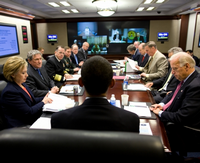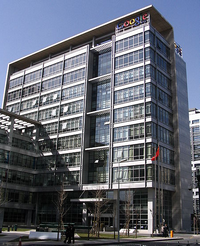
Two weeks ago, while discussing last November’s tragic events at Fort Hood, Defense Secretary Robert Gates proclaimed that the Pentagon “is burdened by 20th century processes and attitudes mostly rooted in the Cold War.” This acknowledgement by a wartime defense secretary is yet another stark reminder that the broader U.S. national security system was also designed for a much different era, and stands in need of a holistic review and systemic modernization. When the National Security Act of 1947 was enacted, the national and global security environments were exceedingly different from those that exist today. Responding to the costly inefficiencies […]


